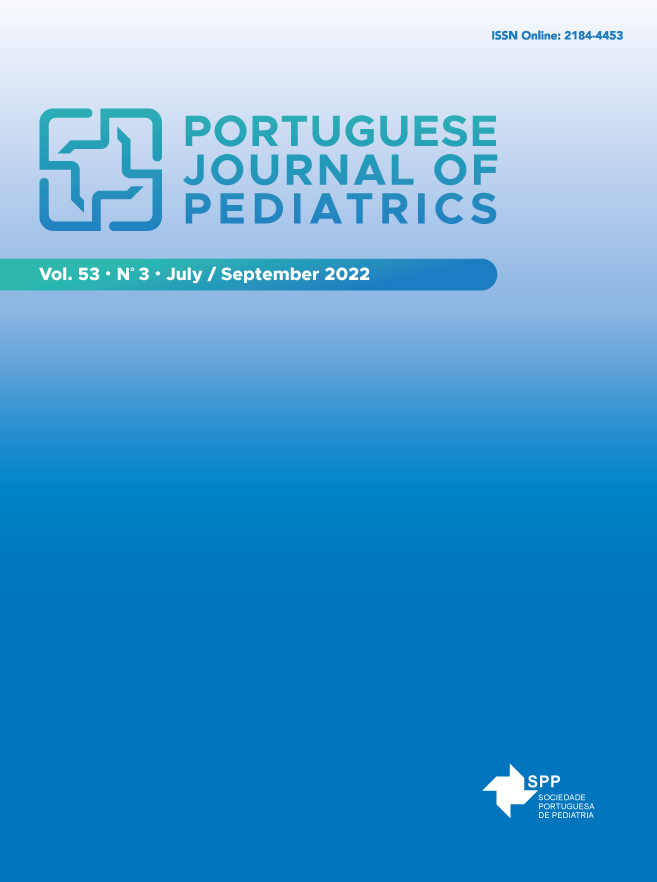Tumor Necrosis Factor Receptor-1 Associated Periodic Syndrome in Two Brothers: Case Report
DOI:
https://doi.org/10.25754/pjp.2022.25061Abstract
Hereditary periodic fever syndromes are a rare group of diseases that should be considered in the differential diagnosis of recurrent fevers of unknown origin. We report a case of two brothers with recurrent, self-limited fever episodes since three years of age associated with prostration, conjunctival hyperemia, abdominal pain, polyarthralgia, and myalgia. Acute phase reactants (C-reactive protein and erythrocyte sedimentation rate) were markedly elevated during crisis and normal during asymptomatic periods. Genetic study identified a mutation in the TNFRSF1A gene (c.242G>T, p.Cys81Phe) and led to the diagnosis of tumor necrosis factor receptor-1 associated periodic syndrome. Treatment with an interleukin-1 receptor antagonist (anakinra) was initiated with symptomatic control. The children father, who suffered from renal failure in the context of AA amyloidosis was also tested and demonstrated to have the same mutation. Tumor necrosis factor receptor-1 associated periodic syndrome is one of the most common hereditary periodic fever syndromes. It has an autosomal dominant pattern with incomplete penetrance, and presents with high interindividual variability of symptoms. AA amyloidosis is the most severe complication of untreated tumor necrosis factor receptor-1 associated periodic syndrome. Based on evidence, treatment with an interleukin-1 receptor antagonist is effective in remitting symptoms and preventing complications.
Downloads
Downloads
Published
Issue
Section
License

This work is licensed under a Creative Commons Attribution-NonCommercial-NoDerivatives 4.0 International License.









